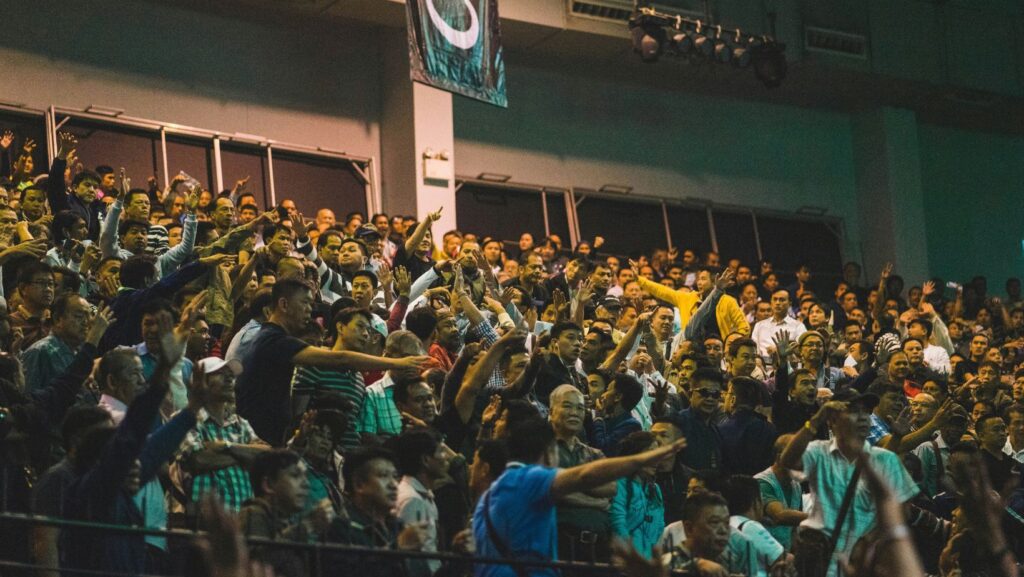Sports betting has rapidly evolved from a shadowy pastime into a cultural mainstay woven into the fabric of modern entertainment. What was once confined to smoky backrooms and Vegas sportsbooks is now a mainstream experience shared across living rooms, phones, and social feeds.
Since the Supreme Court overturned the federal ban in 2018, legalized sports wagering has transformed not only how fans interact with their favorite teams but also how they consume media and connect.
Sports betting today is more than a wager; it’s an interactive layer of entertainment, technology, and community that reflects the way people experience sports in the digital age.
From Taboo to Mainstream: Legalization Changed Everything
For decades, sports betting lived on the fringes of American sports culture, whispered about but rarely discussed openly. That changed in 2018 when the Supreme Court struck down the Professional and Amateur Sports Protection Act (PASPA). Overnight, states gained the freedom to legalize and regulate sports wagering, and the industry exploded.
Now, more than three-quarters of U.S. states offer some form of legal sports betting. This transformation wasn’t just economic; it was cultural. The once-taboo topic of betting became a legitimate conversation point on sports talk shows and podcasts. Fans could now participate legally, openly, and for the first time, digitally.
After the legalization wave, betting became another way to experience the thrill of sports, reshaping the meaning of fandom for a new generation.
How Technology Brought Betting Into Everyday Entertainment
The rise of mobile technology and digital innovation turned sports betting from a niche hobby into an accessible, everyday experience. Smartphones made it possible to place bets, track odds, and follow live games all in one place.
The Mobile Revolution
The biggest game-changer in modern betting is the move to mobile. Fans no longer need to visit a sportsbook; they can engage from their couches, bars, or stadium seats. Platforms like FanDuel Sportsbook have redefined accessibility with seamless interfaces for placing real-time bets, checking lines, and tracking wagers as the action unfolds.

Mobile betting isn’t just convenient; it’s immersive. Apps deliver live stats, trends, and personalized updates that make users feel part of the action. That immediacy, the ability to react to every pitch, drive, or penalty, keeps fans coming back.
Personalization Through Data
Every fan watches sports differently, and technology reflects that individuality. Data-driven platforms tailor odds, suggestions, and in-game updates to a user’s preferences, whether they follow basketball, baseball, or global soccer.
The result is a more dynamic, personalized form of engagement that mirrors the evolution of modern entertainment: interactive, customized, and always connected.
The Media–Sportsbook Alliance: Betting Meets Broadcast
Few industries have adapted to this cultural shift as quickly as sports media. Betting and broadcasting now move in tandem, creating a mutually beneficial relationship that deepens fan engagement.
Integrated Broadcasts
Sports networks have fully embraced betting’s entertainment value. Live odds appear on-screen during broadcasts. Commentators reference spreads and over/under totals without hesitation. Entire segments now explore betting storylines, transforming what was once considered background noise into part of the main event.
Partnerships between networks and sportsbooks have made these integrations even smoother. For example, collaborations between major broadcasters and online betting platforms bring betting data directly into the viewing experience. Fans don’t just watch the game; they interact with it in real time.
Betting as Content
Beyond traditional broadcasts, betting itself has become content. Podcasts, YouTube shows, and other social media channels deliver daily betting discussions, predictions, and recaps.
The tone is less transactional and more conversational, appealing to audiences who want both entertainment and insight. This blend of storytelling and strategy keeps fans invested long after the final whistle.
How Sports Betting Has Changed the Way Fans Engage
Modern sports fans no longer see betting as separate from fandom; it’s an extension of it. Betting offers a sense of participation that goes beyond cheering for a single team.
Fans who place wagers often follow more sports, watch longer, and care about outcomes that once seemed irrelevant. The language of fandom has expanded, too. Terms like “spread,” “parlay,” and “bad beat” are now part of mainstream sports talk.
Fantasy sports also laid the groundwork for this shift. When millions of fans began tracking player stats and competing in fantasy leagues, they were already primed for a more engaged, numbers-driven approach to sports. Betting has built onto that foundation, turning casual viewers into analytical, interactive participants.
The Social Side of Sports Betting: Community, Culture, and Content
Sports betting has evolved into a shared experience, connecting fans through social media and digital communities. Platforms like Twitter (now X), Reddit, and TikTok buzz with betting culture, memes about improbable wins, viral clips of reactions, and public “bet slips” shared with friends. These moments turn betting into a communal event.
Betting discussions have become just another part of online sports conversation, sitting comfortably alongside highlights and trade rumors. Influencers, analysts, and fans alike contribute to this ecosystem, posting predictions, breakdowns, and playful commentary.
Today’s sportsbooks often incorporate leaderboards, challenges, and group competitions, blurring the line between betting and social gaming. Friends can follow one another’s bets, celebrate wins, and commiserate over losses, transforming what was once solitary into something social.
A Shifting Entertainment Ecosystem
The influence of sports betting on entertainment is growing, shaped by both innovation and a sense of responsibility. Key trends on the horizon include:
- Smarter, more interactive experiences: Future development will emphasize deeper analytics, intuitive design, and immersive interfaces that strengthen fan engagement,
- Greater transparency and accountability: Regulators and operators are prioritizing balanced, informed participation, ensuring sports betting remains an enjoyable part of the entertainment experience,
- Expansion beyond sports: Wagering is reaching new cultural spaces, from award shows to esports, reflecting audiences’ appetite for interactive, participatory entertainment.
As technology, culture, and regulation evolve together, sports betting will continue to redefine how fans connect with both the games they love and the entertainment that surrounds them.
A Culture Redefined
Sports betting has transcended its reputation as a pastime to become an integral part of modern entertainment. It shapes how people consume media, how they socialize, and how they experience the highs and lows of competition.
What began as a quiet subculture has evolved into a defining feature of contemporary sports life, one that connects fans not only to the games they love but to each other. In the process, sports betting has done something remarkable: it’s turned watching into participating, and entertainment into engagement.




